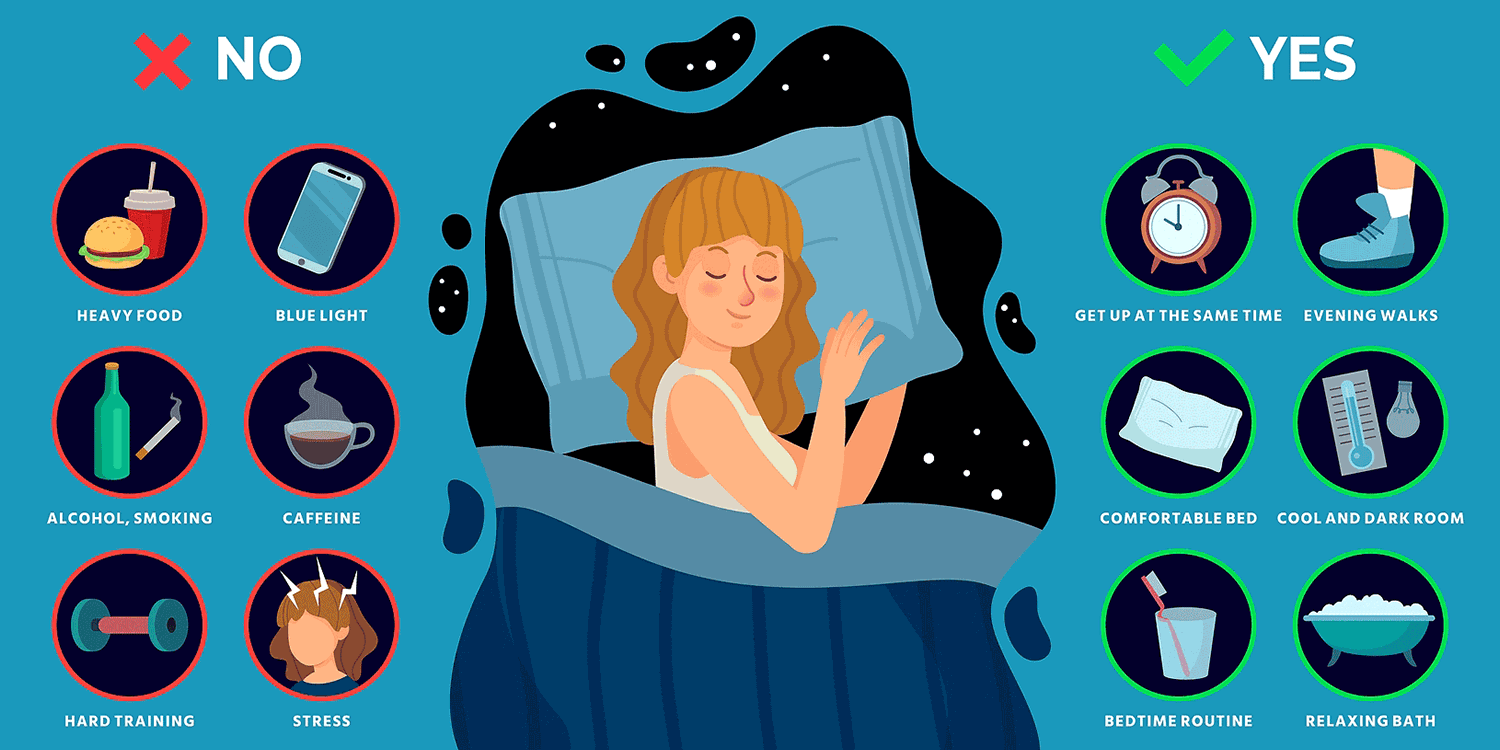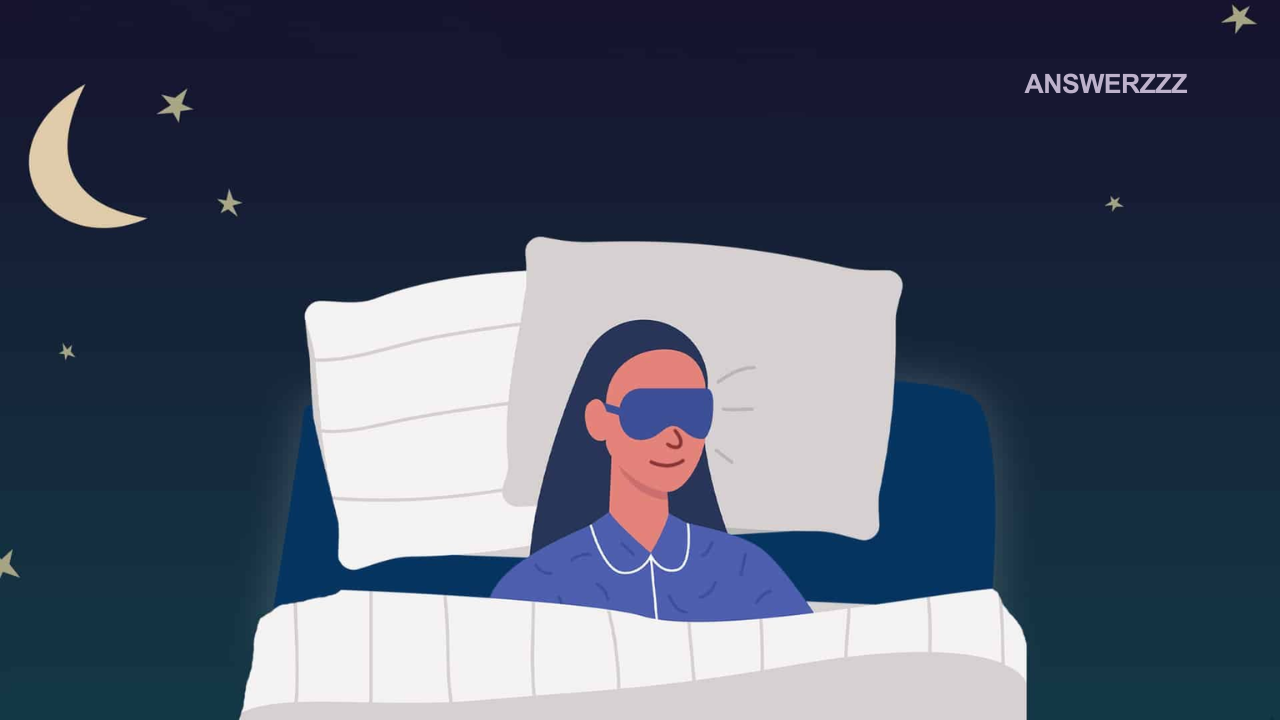In our fast-paced world, quality sleep often takes a backseat to work, social obligations, and endless scrolling on our devices. Yet, sleep is essential for our physical health, mental well-being, and overall productivity. Despite its importance, millions of people struggle with sleep disorders or poor sleep quality.
If you’re tired of waking up groggy or struggling to fall asleep, you’re not alone. This comprehensive guide offers expert tips to help you improve your sleep habits and reclaim your nights. From understanding sleep cycles to creating an ideal sleep environment, we’ve got you covered.
Why Is Sleep So Important?
Before diving into tips, it’s essential to understand why sleep matters. Sleep isn’t just downtime for your body; it’s a period of restoration and repair.
- Physical Health: Sleep promotes muscle recovery, supports the immune system, and regulates hormones. Chronic sleep deprivation is linked to conditions like obesity, diabetes, and heart disease.
- Mental Clarity: Sleep helps process information, consolidate memories, and enhance learning. A well-rested brain is more alert and productive.
- Emotional Balance: Poor sleep can lead to irritability, mood swings, and even depression or anxiety.
- Longevity: Studies have shown that consistent quality sleep can contribute to a longer, healthier life.

Understanding Sleep Cycles
Sleep isn’t a uniform process; it occurs in cycles. Each cycle typically lasts 90 minutes and includes four stages:
- Light Sleep (Stages 1 & 2): Your body begins to relax, and your heart rate slows down.
- Deep Sleep (Stage 3): This restorative stage is crucial for physical recovery.
- REM Sleep (Stage 4): Rapid Eye Movement sleep is when dreaming occurs, and the brain processes emotions and memories.
A good night’s sleep consists of four to six cycles. Waking up at the end of a cycle, rather than in the middle, leaves you feeling refreshed.
Expert Tips for Better Sleep
1. Establish a Consistent Sleep Schedule
Our bodies thrive on routine. Going to bed and waking up at the same time every day—even on weekends—helps regulate your internal clock.
- Why It Works: Consistency reinforces your circadian rhythm, making it easier to fall asleep and wake up naturally.
- How to Start: Gradually adjust your bedtime if needed, aiming for at least 7-9 hours of sleep per night.
2. Create a Sleep-Friendly Environment
Your bedroom should be a sanctuary for rest.
- Dim the Lights: Use blackout curtains or an eye mask to block out light.
- Reduce Noise: White noise machines or earplugs can mask disruptive sounds.
- Control Temperature: A cool room (around 60-67°F or 15-20°C) is optimal for sleep.
- Comfortable Bedding: Invest in a supportive mattress and soft, breathable sheets.
3. Limit Screen Time Before Bed
Electronic devices emit blue light, which suppresses melatonin, the hormone responsible for sleep.
- Expert Tip: Avoid screens at least an hour before bedtime.
- Alternative Activities: Read a book, practice meditation, or listen to calming music.
4. Be Mindful of Diet and Caffeine
What you consume affects your sleep quality.
- Avoid Heavy Meals: Eating a large meal close to bedtime can cause discomfort.
- Limit Caffeine and Alcohol: Both can disrupt sleep patterns, so cut them out 4-6 hours before bed.
- Stay Hydrated: Drink enough water during the day, but reduce intake in the evening to avoid nighttime trips to the bathroom.
5. Get Moving During the Day
Regular physical activity promotes better sleep, but timing matters.
- Best Time to Exercise: Morning or afternoon workouts improve sleep quality.
- Avoid Late-Night Exercise: Intense evening workouts can increase alertness and delay sleep.
6. Practice Relaxation Techniques
Stress and anxiety are major sleep disruptors. Relaxation techniques can help calm your mind.
- Deep Breathing: Try inhaling for 4 counts, holding for 7, and exhaling for 8.
- Progressive Muscle Relaxation: Tense and release each muscle group from head to toe.
- Meditation and Mindfulness: Apps like Calm or Headspace offer guided sessions.
7. Limit Naps
While naps can be refreshing, they can also interfere with nighttime sleep.
- Keep It Short: Limit naps to 20-30 minutes.
- Nap Early: Avoid napping late in the day to ensure you’re tired by bedtime.

8. Expose Yourself to Natural Light
Natural light exposure regulates your body’s production of melatonin.
- Morning Sunlight: Spend 10-15 minutes outside shortly after waking up.
- Avoid Bright Lights at Night: Dim your lights in the evening to signal your body that it’s time to wind down.
9. Stick to a Wind-Down Routine
Prepare your mind and body for sleep with a calming pre-bedtime routine.
- Examples: Take a warm bath, practice yoga, or journal your thoughts.
- Consistency: Repeating the same activities each night signals your brain that it’s time to sleep.
10. Manage Sleep Disorders
If you’ve tried everything and still struggle, you may have an underlying sleep disorder.
- Common Disorders: Insomnia, sleep apnea, restless leg syndrome, and narcolepsy.
- Seek Professional Help: A sleep specialist can diagnose and treat these conditions.
Lifestyle Changes for Long-Term Sleep Success
In addition to the expert tips above, adopting a healthy lifestyle can improve sleep over time.
- Healthy Diet: Eat a balanced diet rich in whole foods, lean protein, and healthy fats.
- Stress Management: Prioritize mental health through therapy, hobbies, or social connections.
- Digital Detox: Reduce overall screen time, especially in the evening.
The Role of Technology in Better Sleep
Ironically, while screen time can hurt sleep, technology also offers tools to improve it.
- Sleep Tracking Apps: Apps like Sleep Cycle or Fitbit monitor your sleep patterns.
- White Noise Machines: Devices like LectroFan create soothing sounds.
- Smart Lighting: Philips Hue lights can simulate sunrise to help you wake up naturally.
Common Myths About Sleep
1. “I Can Catch Up on Sleep Over the Weekend.”
While sleeping in might help temporarily, it won’t fully compensate for chronic sleep deprivation.
2. “I Don’t Need 7-9 Hours of Sleep.”
Although sleep needs vary, most adults require at least 7 hours to function optimally.
3. “Alcohol Helps Me Sleep.”
While alcohol may help you fall asleep faster, it disrupts deep and REM sleep, reducing overall quality.

A Word on Sleep Supplements
While natural supplements like melatonin or magnesium can help, they’re not a long-term solution. Consult a healthcare professional before trying any supplement.
Final Thoughts
Sleep is a cornerstone of good health, yet it’s often overlooked. By prioritizing consistent routines, creating a sleep-friendly environment, and addressing potential sleep disruptors, you can enjoy restful nights and energetic days.
Remember, small changes can lead to big improvements over time. Start implementing these expert tips today, and you’ll be on your way to better sleep and a healthier life.
If you found this guide helpful, share it with friends or family who might benefit. For more tips on improving your lifestyle, subscribe to our blog and stay tuned for expert advice on health and wellness.



